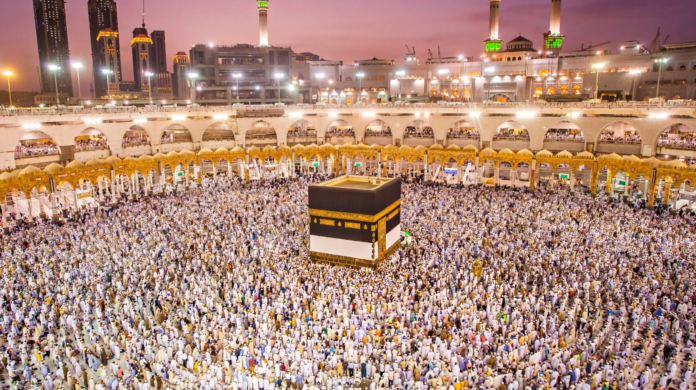The federal cabinet, in a meeting led by Prime Minister Shehbaz Sharif on Tuesday, approved Pakistan’s Hajj Policy for 2025, setting out the guidelines, costs, and quotas for pilgrims. The Hajj quota for Pakistani pilgrims in 2025 has been allocated at 179,210, divided equally between government and private sectors, with each sector managing about 89,605 pilgrims. This balanced approach is designed to provide more opportunities for both public and private participation in organizing Hajj.
For those opting for the government Hajj package, the cost will range from Rs1,065,000 to Rs1,075,000, with variations based on accommodation types and additional services. This package aims to cover essential needs comprehensively, ensuring that pilgrims have the support they need throughout the pilgrimage.
This year’s Hajj policy includes several significant updates. Notably, children under the age of 12 will no longer be eligible to perform Hajj, marking a shift in eligibility criteria. Additionally, applicants under the government quota will participate in a computerized balloting process, guaranteeing fairness and transparency. Within this government quota, a portion has been reserved to support specific cases: 1,000 seats are allocated for hardship cases, and 300 seats are set aside for low-income workers registered with the Workers Welfare Fund or the Employees Old-Age Benefits Institution. This reserved allocation is intended to provide opportunities for these individuals to embark on the pilgrimage with government assistance.
To facilitate a smoother travel experience, the policy includes the ‘Road to Makkah’ facility at Islamabad and Karachi airports, which aims to simplify travel procedures for departing pilgrims. Meanwhile, private Hajj organizers are required to sign service agreements with the Ministry of Religious Affairs. The Ministry will rigorously monitor these agreements to ensure service standards are met, thereby maintaining the quality of services provided to pilgrims.
Another new initiative this year is the creation of the position of “Nazim,” a role dedicated to overseeing services and supporting travelers. One Nazim will be assigned for every 100 pilgrims and will be drawn from welfare staff. This role is designed to improve the well-being of pilgrims by ensuring their needs are addressed and by providing dedicated assistance throughout the journey.
The policy has also substantially increased compensation for the families of pilgrims who pass away or sustain injuries while performing Hajj. Families of deceased pilgrims will now receive compensation between one and two million rupees, while those who are injured will receive one million rupees.
Furthermore, a dedicated mobile application has been launched to give pilgrims convenient access to essential information and assistance. Training programs have been established to help prepare pilgrims for the journey, equipping them with practical knowledge and guidance.
The cabinet has emphasized that priority in the selection process should be given to those who have never performed Hajj before. This focus aims to offer first-time pilgrims a greater chance to experience Hajj, aligning with the government’s commitment to expanding access and providing equal opportunities.
The newly approved 2025 Hajj Policy reflects Pakistan’s commitment to enhancing the experience for its pilgrims, with measures that ensure fairness, transparency, and quality. This comprehensive approach underlines the government’s dedication to offering a safe, affordable, and spiritually fulfilling experience for Pakistani pilgrims on this important journey.




